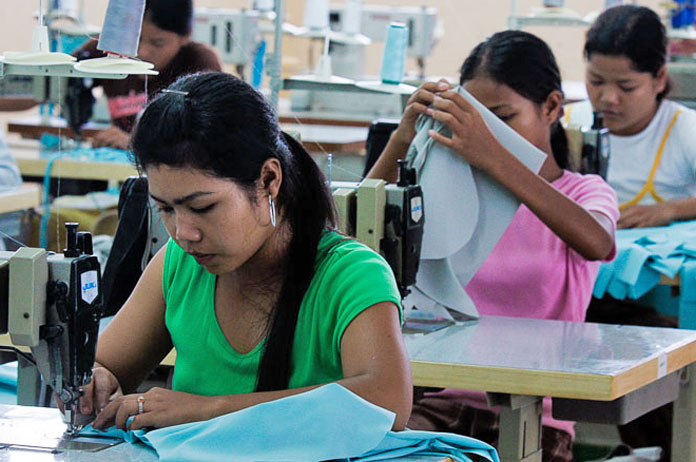Cambodia Gets B2 Moody’s Rating
Cambodia got a B2, stable, rating by Moody’s Investors Service for having small fiscal deficits, low government debt and a high capability to service debt, which Moody’s said were the Kingdom’s credit strengths.
 Moody’s said disruption in global trade flows could have substantial negative impacts on Cambodia’s garment exports. KHMER TIMES / CHOR SOKUNTHEA
Moody’s said disruption in global trade flows could have substantial negative impacts on Cambodia’s garment exports. KHMER TIMES / CHOR SOKUNTHEA
“In Cambodia, strengthening government revenue collection and macroeconomic and exchange rate stability together with the authorities’ efforts to address institutional weaknesses and diversify the economy should continue to support sovereign credit quality,” Moody’s said in a report released yesterday. “Cambodia’s institutions face greater challenges, but reforms are in train. Its ongoing reforms to reduce corruption and enhance the rule of law are positive, although they have yet to materially strengthen its institutions,” it added.
“Cambodia’s smaller fiscal deficits, lower government debt and higher debt affordability –reflecting its larger concessional funding base – are credit strengths,” said Moody’s, comparing the Kingdom to neighbouring Vietnam which got a B1, positive, rating. Moody’s also stated that while political risk was moderate in Cambodia, the potential for domestic political tensions could reduce “the attractiveness of doing business” in the country.
The investors’ service also pointed out that Cambodia’s current credit growth could pose an increasing risk to the financial sector. “Persistently strong credit growth – which has outpaced nominal GDP growth and increasingly flowed into correction-prone – poses risks to economic and financial stability,” said Moody’s.
Commenting on the country’s exports, Moody’s said disruption in global trade flows could have substantial negative impacts on Cambodia, given its high level of dependence on the garment sector. “Garment and textiles production and a few other low value-added manufacturing dominate Cambodia’s exports, which are largely destined for the US and the European Union, exposing the economy to sector and market specific shocks,” stated the report.
The International Monetary Fund last month projected that Cambodia’s economic growth will be at 7 percent in 2017 based on higher public spending, robust construction, tourism activities and foreign reserve growth. But it also warned that rapid credit growth could pose a threat to the country’s fledgling finance sector.
The IMF said rapid credit growth over the past several years had led to a significant increase in the bank credit-to-GDP ratio coming close to 70 percent. “While macro prudential measures taken by the National Bank of Cambodia has moderated credit growth this year, credit-to-GDP ratio is still increasing and a sizeable part of bank credit continues to be funded from abroad,” said Jarkko Turunen, senior economist at the IMF, when releasing the Article IV mission report on Cambodia.
“The authorities should continue to take measures to improve resilience and address elevated financial sector vulnerabilities, such as better managing credit risks, introducing targeted macro prudential policies, developing a crisis management framework, and upgrading regulation of non-bank financial institutions,” he added.
This article was originally published in the Khmer Times. [democracy id="26"]